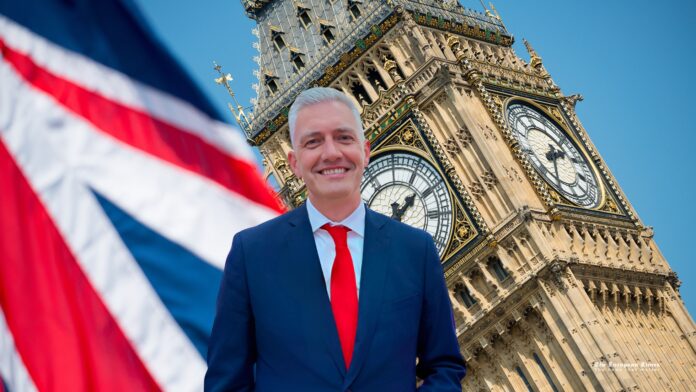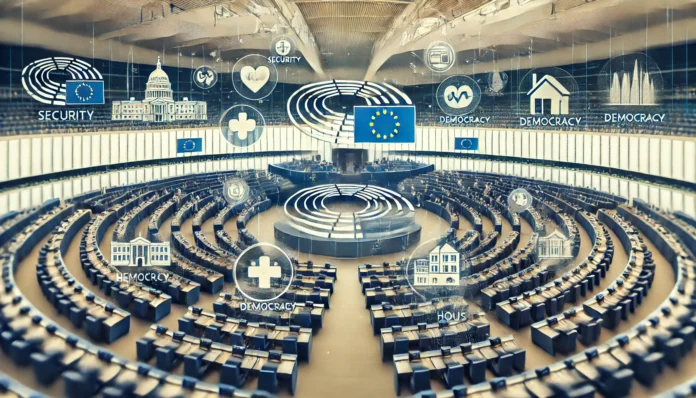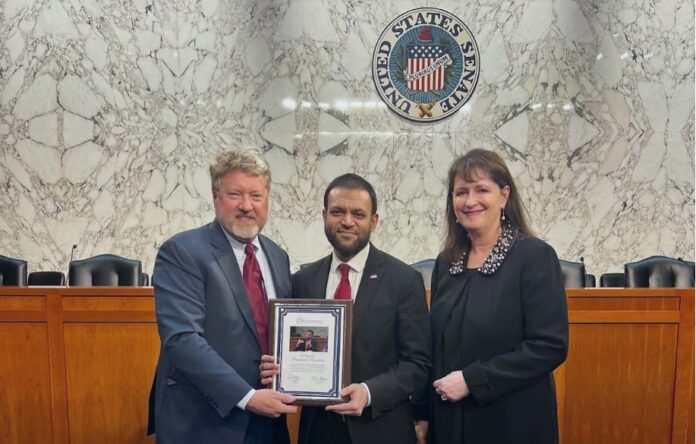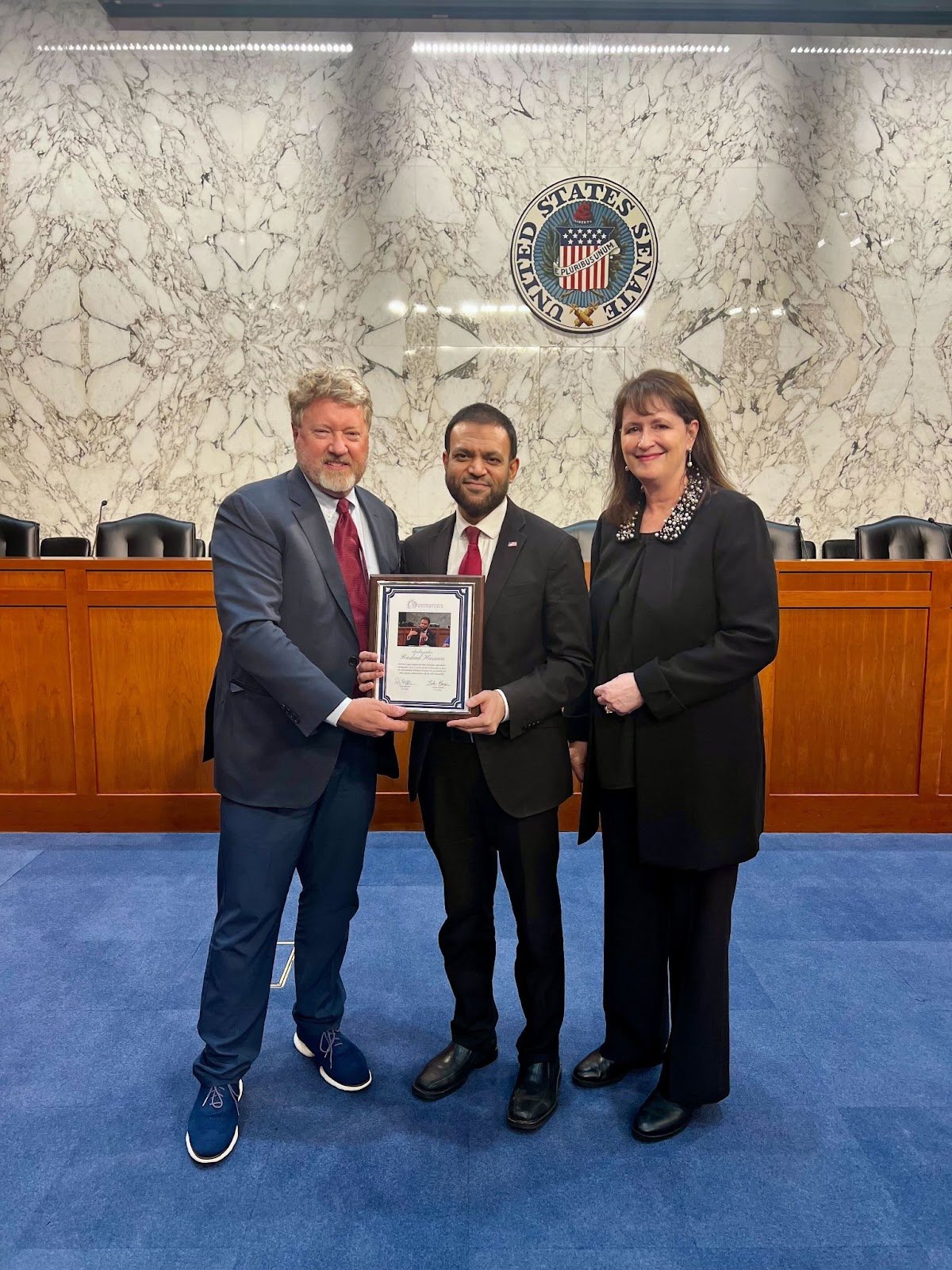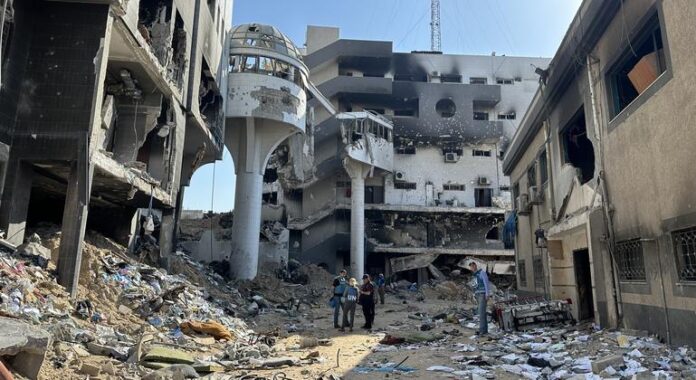In a significant move for global religious freedom, the UK Government has appointed David Smith MP as its new Special Envoy for Freedom of Religion or Belief (FoRB). This appointment, announced in early December 2024, signals the government’s commitment to advancing religious liberty across the globe and responds to increasing concerns over the persecution of religious minorities in many parts of the world. Smith, a Conservative MP with a strong track record on human rights issues, takes on a critical role at a time when religious freedoms face unprecedented challenges worldwide.
A Crucial Appointment for Religious Freedom
The new position of Special Envoy for FoRB was created in 2019 as part of the UK’s ongoing commitment to defending freedom of religion or belief for people of all faiths and none. The envoy works with international partners, including governments and civil society, to promote religious freedom, counter religious persecution, and support those who are oppressed because of their faith.
The announcement of Smith’s appointment was welcomed by a wide range of religious and human rights organizations. According to a statement from the UK government, the role will involve championing religious freedom in diplomatic discussions, strengthening the international coalition for religious liberty, and advocating for policies that protect the rights of religious minorities worldwide. Smith’s responsibilities will also include monitoring global trends related to religious freedom and providing guidance on how the UK can support vulnerable communities.
The Foreign, Commonwealth, and Development Office (FCDO) emphasized that the appointment of a dedicated envoy underscores the UK’s resolve to ensure that religious freedom remains a central tenet of its foreign policy.
David Smith: A Defender of Religious Liberty
David Smith, a Member of Parliament for over a decade, is known for his advocacy of human rights and his commitment to religious freedom. His appointment to this high-profile position is seen as a logical step, given his background in championing issues related to freedom of conscience, expression, and belief.
Smith has long been involved in supporting religious communities facing persecution, particularly Christians and other minorities in conflict zones like the Middle East. In his parliamentary work, he has regularly spoken out on the importance of religious freedom as a fundamental human right and has pushed for stronger UK and international action against regimes that suppress religious expression. Smith’s extensive experience working on humanitarian issues makes him a powerful advocate for those suffering under oppressive regimes.
As the new Special Envoy, Smith will now be tasked with expanding these efforts on a global scale, leveraging his political influence and relationships to press for meaningful change.
Welcoming the Appointment: Reactions from Religious Organizations
The appointment has been widely lauded by faith-based organizations and advocacy groups across the UK. Aid to the Church in Need (ACN), a charity that focuses on helping persecuted Christians around the world, praised the selection of Smith, calling it a “significant step” towards addressing the growing global crisis of religious persecution. ACN’s UK director, Dr. Neville Kyrke-Smith, expressed hope that Smith’s work would lead to more coordinated international efforts to protect vulnerable religious communities, particularly in regions like the Middle East and Africa where Christians and other religious minorities often face violent oppression.
Similarly, Christian Concern, an organization dedicated to defending religious freedom, commended the UK government’s decision. Andrea Williams, the CEO of Christian Concern, described the appointment as an “important signal” that the UK is serious about protecting religious freedom. Williams emphasized the importance of Smith working with international counterparts to counter the rise of state-sponsored persecution, especially in countries like China and North Korea, where the freedom to practice religion is severely restricted.
Care, a Christian public policy charity, also welcomed Smith’s appointment, underscoring the importance of having a designated official who can actively engage with international partners to address the complex challenges posed by religious intolerance and persecution. “Religious freedom is an essential human right that must be defended wherever it is threatened,” said a Care spokesperson. “We look forward to working with Mr. Smith to ensure that religious liberty is placed at the heart of the UK’s foreign policy.”
The Role of the UK Government in Global Religious Liberty Advocacy
The creation of the Special Envoy for FoRB was part of a broader initiative by the UK government to elevate religious freedom on the global stage. The UK’s involvement in FoRB issues has historically been robust, with the government regularly highlighting the issue at the United Nations and within diplomatic circles. However, the rise of authoritarian regimes and the ongoing persecution of religious minorities have made the role of the Special Envoy increasingly important.
Smith’s predecessor, Fiona Bruce MP, held the position of Special Envoy for FoRB until recently, and during her tenure, she made significant strides in raising awareness of religious persecution worldwide. She met with Christians, Muslims, Buddhists, Hindus, Scientologists, Bahai’s, Latrer Day Saints and everyone who needed to meet with her. Under her leadership, the UK government took steps to support vulnerable religious groups, including the Yazidis in Iraq, Christians in the Middle East, and Uyghur Muslims in China. Smith’s appointment builds upon this legacy, and experts believe that his extensive experience will help to elevate the UK’s influence on this critical issue.
Smith’s work will not only focus on diplomatic efforts but will also involve collaborating with international civil society groups, religious leaders, and grassroots organizations that are directly involved in defending religious freedom. As the UK’s representative, Smith will be expected to engage with a wide range of stakeholders to foster international cooperation in addressing religious persecution.
Challenges Ahead
Despite the broad support for Smith’s appointment, there are significant challenges ahead. Religious persecution continues to rise in various regions of the world, with many countries adopting increasingly restrictive policies on religion and belief. In China, for example, the government continues to impose heavy restrictions on religious practices, particularly targeting Christian and Muslim communities. In countries like Nigeria and Pakistan, religious minorities such as Christians, Yazidis, and Hindus continue to face violence, discrimination, and displacement.
The Special Envoy’s role is not without its difficulties. Advocating for religious freedom in countries with hostile regimes can be politically sensitive, and the envoy must carefully balance diplomatic priorities with the need to confront human rights abuses. Moreover, given the complexity of global geopolitics, there will be times when the UK’s stance on religious freedom may clash with its economic or strategic interests in certain regions.
However, with Smith’s experience and commitment to the cause, the UK government’s approach to FoRB looks poised to continue making meaningful strides in the global fight for religious freedom.
Conclusion: A Beacon for Global Religious Liberty
David Smith’s appointment as the UK’s Special Envoy for Freedom of Religion or Belief represents a significant step forward in the fight to protect religious freedoms across the world. In a time of rising persecution and intolerance, Smith’s work will be essential in shining a spotlight on the plight of religious minorities and advocating for their rights on the global stage.
With the support of religious and human rights organizations, the UK’s commitment to religious freedom is stronger than ever, and Smith’s appointment signals that the country is ready to continue playing a leading role in defending this fundamental human right. As the world’s attention turns increasingly to issues of religious freedom, the role of the Special Envoy will remain crucial in shaping global responses and ensuring that the freedom to practice one’s faith is protected for all.



